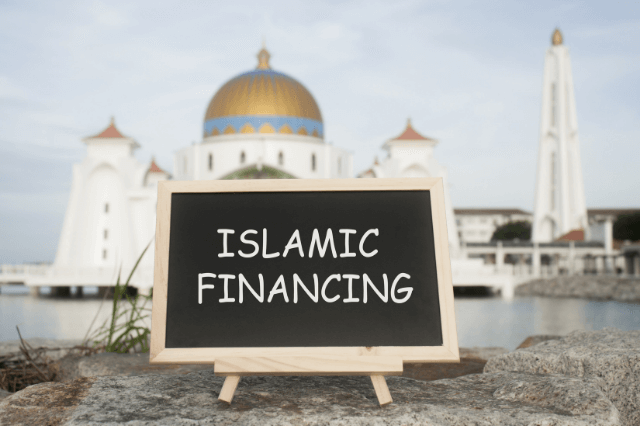In early March, many leading investors and experts met at the Sukuk Summit 2018 in London to discuss one of the oldest and most underdeveloped elements of the global market – Islamic finance.
At the Summit, delegates specifically focused on the Sukuk: a bond structured to generate returns to investors whilst complying with Islamic finance jurisprudence, one of the key features of which is that it prohibits taking or charging interest[1].
According to the ICD-Thomson Reuters Islamic Finance Development Report 2017[2], the global market for Islamic finance is expected to reach $3.5 trillion by 2022, up from $2.2 trillion at the end of 2016.
In its latest report: Global Trends in Islamic Finance and the UK Market [3], TheCityUK states that over 20 banks in Britain offer Islamic financial services and has five fully licenced Shari’ah compliant banks.
Highlighting the importance of Islamic finance to the UK economy and infrastructure projects, the report states:
“Islamic finance plays a significant role in infrastructure development in the UK. This includes development finance for The Shard, Battersea Power Station regeneration, London Gateway, the Olympic Village and the redevelopment of Chelsea Barracks. Over 6,500 homes in the North West and the Midlands are currently being financed by a £700m investment by Gatehouse Bank, a fully [Shari’ah] -compliant bank. Current trends suggest that the role of Islamic finance in funding infrastructure development will continue to grow in the years ahead”.
Myths
Despite its growth, there are several myths surrounding Islamic finance, so before explaining what it is, it is worth dispelling certain misconceptions which have developed:
Myth 1 – Islamic finance is only for Muslims
Islamic finance solutions are open to all people. There is nothing prohibiting a person from a particular faith from either using Islamic financial services or operating an Islamic finance institution. Islamic finance is simply an alternative means of wealth creation. In fact, because many of the features of Islamic finance are based on social justice and fairness to all members of the community, it has a wide and growing appeal, especially after the banking excesses which were exposed following the 2008 financial crisis.
Myth 2 – Islamic finance is not concerned with profit
Given the number of high-net-worth corporations and individuals benefiting from Islamic finance and its investments and initiatives, one would be mistaken to dismiss it as a mere ‘charitable lending institution’. Like all players in the financial market, those running an Islamic finance institution are doing so to make money and are fully accountable to their investors and shareholders the same way that conventional banks are.
So what is Islamic finance?
The Islamic financial market’s core values are based on Shari’ah (Islamic jurisprudence). One of the key components of Islamic finance is that the generation of income through interest is prohibited. Interest known as ‘Riba’, which means ‘to grow, to exceed, to increase’ in Arabic. This notion derives from the foundation that money has no intrinsic value and there should be no charge for its use; money should only be used as a measure of worth.
Islamic finance structures work based on risk sharing. The investors and the entrepreneurs share the potential loss of any investment on agreed terms and the profits are divided between them. These structures promote certainty by ensuring that all key terms are agreed in writing between the parties in advance. The types of Islamic finance include (NB: this is a non-exhaustive list):
- Ijara – is a leasing agreement whereby the investor or bank purchases an asset for a customer and then leases it back to the customer for a period of time, after which the customer is transferred legal ownership of the asset.
- Murabaha – this is essentially lending at a cost plus profit. The bank purchases an asset and then sells it on to the customer with repayment of the cost price and the bank’s profit element to be made on a deferred basis. Further detail of how this type of structure operates can be found in the following article: https://saracenssolicitors.co.uk/banking-finance/loan-arrangements-murabaha-islamic-finance;
- Musharaka – is an investment partnership (i.e. joint venture) in which profit sharing terms are agreed by the parties in advance, and losses are based on the amount and proportions invested by each partner. Musharaka arrangements are common between Islamic finance banks and their commercial clients. Our article detailing the structure and key considerations of this arrangement can be found via the following link: https://saracenssolicitors.co.uk/banking-finance/partnerships-joint-ventures-musharaka-islamic-finance;
- Sukuk – a corporate bond in which the bond holders each hold an undivided beneficial ownership in the underlying asset(s). The sukuk (i.e. bond) holders are entitled to a share in the revenue generated;
- Wakala – is an agency arrangement under which an agent (i.e. wakeel) is appointed to invest funds on behalf of the investor(s). Our article on the wakala arrangement provides further details and can be found via the following link: https://saracenssolicitors.co.uk/banking-finance/agency-arrangements-wakala-islamic-finance;
- Mudaraba – an investment arrangement in which one party provides the capital and the other provides entrepreneurial management expertise. This arrangement is a mixture between a wakala and musharaka Further information can be found in our article via the following link: https://saracenssolicitors.co.uk/banking-finance/profit-sharing-mudarabah-islamic-finance; and
- Takaful: is a form of mutual insurance in which money is pooled and invested.
In summary
Investors and Islamic financial institutions make a profit via Shari’ah compliant finance structures by having “skin in the game” and taking a share in the trading activity and investment profits generated by their customer’s success, on which they have also shared the risk. It is therefore vital that both parties in the above arrangements ensure that the key terms, considerations and obligations of each party are clearly documented in a balanced agreement.
Saracens Solicitors is a multi-service law firm based opposite Marble Arch on the North side of Hyde Park in London. We have years of experience in advising people and business on Islamic finance. For more information, please call our office on 020 3588 3500.
[2] https://www.icd-ps.org/en/common/viewfile?FilePath=~/Uploads/publication/doc/20171205113348810IFDIReport2017.pdf
[3] https://www.thecityuk.com/assets/2017/Reports-PDF/Global-trends-in-Islamic-finance-and-the-UK-market.pdf
